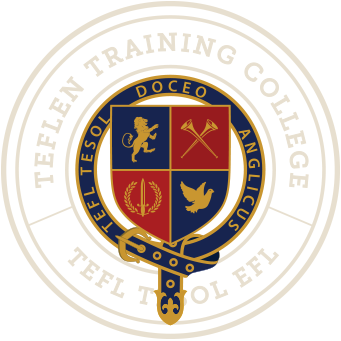


TEACH ENGLISH ABROAD
Teaching English overseas can be one of the most rewarding and satisfying jobs in the world.
If you plan it well, you can live a lifetime of experiences in just a few years.
![]()
After qualifications, the next step is deciding where to teach. Some teachers have a destination already in mind, for many teachers there’s no one particular place which stands out. Take a look at our Country Profiles, eventually one place will seem more attractive than the others. Explore your opportunities!
What Countries are popular? as a very general guide:
• British and Irish teachers tend to go for Southern Europe
• American teachers head over to South Korea and Vietnam
• Australian teachers stick to South Korea and Thailand
• Everyone goes to China!
Each year, thousands of people travel to a foreign country on their way to positions in teaching English.
The more you can learn about your students language before you arrive, the more effective you can be in the classroom. Find out as much as you can about your students way of learning, current style of teaching and their grading process. As an outsider and foreigner, you are going to be treated as different and special, in ways you will appreciate and ways you may not.

![]()
While it is your choice of where you want to teach English abroad,
these are factors that may determine where you are eligible to teach English abroad:
CITIZENSHIP
Some countries have legal requirements that foreign English teachers hold citizenship from a native English speaking nation. These countries are typically considered to be: USA, Canada, UK, Ireland, South Africa, Australia, and New Zealand. In many countries it is not a legal requirement for English teachers to hold citizenship from such countries, but it is highly preferred.
ENGLISH FLUENCY AND ACCENT
Verbal skills are extremely important and in many cases, a non-native speaker who speaks like a native speaker will be able to gain employment.
UNIVERSITY DEGREE
Some countries have legal requirements that English teachers hold a four-year degree; a few will accept a two-year associates degree and others will hire teachers without a degree. Often a university degree is needed to get a work visa for the country where the job is.
DEGREE & TEFL/TESOL CERTIFICATE
This is by far the most common combination of qualifications you see when looking for work. It is generally accepted as the minimum for an entry level job in most countries around the world.
AGE
Cultural norms and legal retirement ages mean that language schools in many countries will limit hiring to those English teachers under 55 and in some cases it can be difficult to gain employment for those over 40. At the same time, there are some countries where language schools will hire English teachers into their 70’s.
LENGTH OF CONTRACT
Many countries will require a 12 month contract such as Korea and Vietnam. European countries typically take off for their summer months and contracts run 9 or 10 months. Schools in other countries will hire on 6 month contracts. If you are a successful English teacher, you can almost always extend your contract if you wish to stay longer.
TEACHING WITHOUT A DEGREE
There is no doubt that there is more opportunities for TEFL/TESOL teachers with a degree, however there remains a vast amount of work throughout the world for TEFL/TESOL teachers who have not been to University. TEFL/TESOL teachers without a degree who have gained experience can still find work even in countries that officially require one, experience can often hold more weight than an academic qualification.

![]()
PRIVATE LANGUAGE SCHOOLS
Private language schools probably provide the largest amount of English teaching jobs. Class size varies, normally range from 2-15 students per class. Language schools are commercial enterprises, many teachers love working for language schools, they can be demanding so choose your school carefully. You are required to hold a certificate based on successful completion of a course consisting of a minimum of 100 hours. Teachers are expected to be native English speakers, on average you will teach for 25-30 hours a week with 12-15 hours of prep work. The hiring process for Private schools is simpler and faster than Public Schools so there is less waiting time. Private schools usually have more native English speaking teachers who can assist you along the way.
PUBLIC SCHOOLS
Normally foreign teachers work as assistants or partners with local public school teachers. In most cases public schools offer less work hours and have more vacation time than most private language schools. Some offer free accommodation with airfare reimbursement, typically a public school requires that teachers hold citizenship from a native English speaking country and that they hold a four-year degree. Depending on the country & public school the job placement may take anywhere from 2-8 months in advance, a One-year contract is offen required. Class sizes range from 20-30 students per class.
SUMMER CAMPS
Summer camps in Europe and Asia offer 4-6 week jobs in language camps for school aged children and adolescents. Summer camps like you to have had experience with children although it's not necessarily. Most camp organisers will want to see your TEFL/TESOL certificate. Summer Camps can be a lot's of fun and are great for those looking for shorter periods overseas.
UNIVERSITIES
Experienced TEFL/TESOL teachers with advanced degrees can find openings at the university level. These positions provide opportunities to work with advanced students and typically pay higher than positions in private or public schools.
PRIVATE TUTORING
Supplementing your income through private lessons or generating a portfolio of clients as a freelance tutor, some teachers can double their salaries by teaching students privately in the evening.
BUSINESS
A business English teacher will teach either on a business premises or at a language school. The students will typically be company employees who need or want to learn English to help them advance and further their own careers. Business English positions are very common and widespread. They require a mature attitude and smarter dress, having some business knowledge is useful.
ESP
(English for Specific Purposes) ESP refers to the teaching of a specific genre of mostly technical English for students with specific goals, careers or fields of study. Examples include English for Academic Purposes (students will enter an English-speaking university), English for Business & Management, or Hotel & Catering English (for hotel and tourism professionals). These teaching positions can be very lucrative.
VOLUNTEER TO TEACH ENGLISH ABROAD
If you are able to offer your services in exchange for no more than a bed and meals then the emotional rewards and experience you will gain are immense. Poor nations throughout the world have a huge humanitarian need for volunteer teachers. Volunteering is normally short term, between 1 week and 2 months.

![]()
HOW TO FIND WORK![]()
The majority of language schools advertise for teachers over the internet, over 20,000 new TEFL/ TESOL jobs are listed each month. Agents also advertise for teachers, agents are paid by the schools to find teachers, never pay any agent money to find you work. In the country that you would like to teach, study what the average pay and conditions are... if you find a job offering you 3 times the average wage, your alarm bells should start ringing! Many teachers decide to travel overseas and then look for work, this gives an advantage and the opportunity of doing background research before making a commitment. Check your school out thoroughly before you apply.
PREPARATION
Prepare your documents.
Cover Letter
CV or Resume
COVER LETTER
Keep your cover letter plain and simple and to the point. Your life story in a cover letter is not a particularly good idea, just cover the points. Keep in mind that the person reading your letter may not be highly fluent in English.
The main points to cover are:![]() Why you are writing
Why you are writing![]() Where you saw the advert
Where you saw the advert ![]() Who you are and what you can offer
Who you are and what you can offer ![]() Why you want this particular job
Why you want this particular job ![]() Ask them to consider your application
Ask them to consider your application
EXAMPLE:
Dear Mr Chen,
I am writing to apply for the position of EFL teacher at "China English Language School" which you advertised on the Teflen Job Board on the 14th January, 2013.
Last year I graduated from the University of New South Wales with a degree in English. Following this I took and completed my 120 hour Advanced TEFL/ TESOL Certificate from Teflen Training College. During that time I was also volunteering for AMES at a local community centre teaching English to new arrivals - a job I thoroughly enjoyed!
I have longed to come to China and teach English (I'm starting to learn Mandarin) and I would appreciate it very much if you would consider me for the position of EFL teacher in your school, I have a true passion for language education.
I would be honored to work for your school. Mr Chen, please see my attached resume and if you have any questions please do not hesitate to contact me. Thank you in advance for your consideration.
Sincerely,
Jill Campbell.
RESUME / CV
Your CV should ideally be no more than two pages long. The idea is that this isn’t a complete history of your life but enough information so that the employer will want to find out more about you. Touch on a few points of what they're looking for from the job advertisement into your CV. You do not need to include a photograph on your CV, the employer may ask for one later.
EXAMPLE:
John Smith
- EFL Teacher

Profile
Name
John Smith
Date of Birth
4th January 1984
Address
123 Street Name
Town/City
State & Country
Post/Zip Code
Nationality
Australian
Phone
028 12345678
Email
john@gmail.com
Skype
john1234
Objective
John is degree educated and a hard working qualified EFL Teacher. He is committed to excellence and will always be supportive of a schools aims, agreed teaching styles, methods of assessment and other policies. John has created lessons for a variety of levels from pre-intermediate to advanced, he will encourage curiosity and will motivate your students. John is patient and kind with excellent communication skills and a solid understanding of strong lesson planning and classroom management.
Qualifications
2013
2012
2011
Tefl Certificate.
Master Course,
Teflen Training College.
Bachelor of Arts (Major: Writing)
Macquarie University,
Sydney.
CPR Certified
HCMS Health.
Experience
2013
2011
2010
•
•
•
•
•
•
•
•
•
Edmundston Elementary School, Sydney. (Teaching Assistant)
Assisted the teaching staff at EES by preparing lessons in English, History, and Geography.
Corrected assignments and provided reports to each teacher on the grades achieved by each class.
Assisted course tutors in the preparation of lessons for individual tutoring sessions.
Co-ordinated presentations and demonstrations as part of the teaching curriculum.
Jackson Writing Centre. Sydney. (Instructor)
Conduct writing conferences with students.
Identify weaknesses in development and style.
Guide writers in solving problems.
Learned valuable interpersonal communication skills by collaborating with students from many fields.
Freelance Tutor (Teacher)
Tutoring high school students in English.
Skills
MicrosoftWord, Access, PowerPoint and Excel. Macromedia Dreamweaver and AdobePhotoshop.
Interests
Japanese language and culture, sport and outdoor activities.
Referees
Stephen Williams
Tutor
Teflen Training College name@teflen.com
(+612) 12345678
Profesor Andrew Roberts
English Department
Macquarie University
name@mq.edu.au
(+612) 12345678

